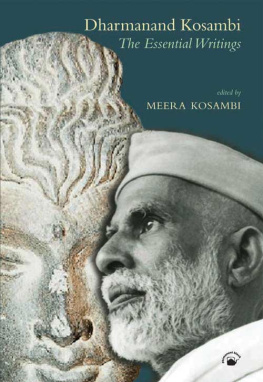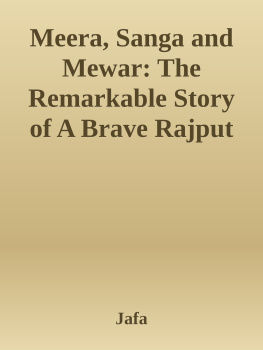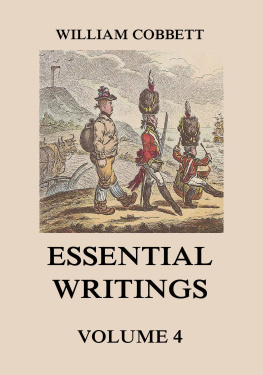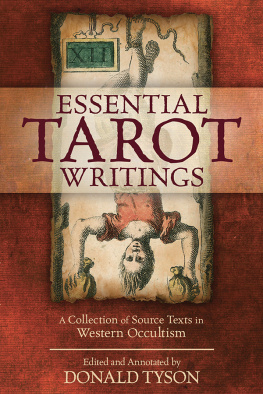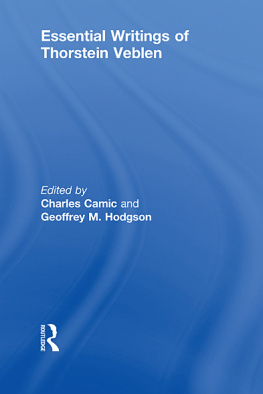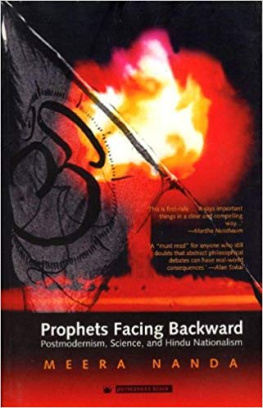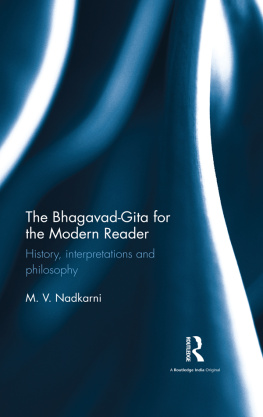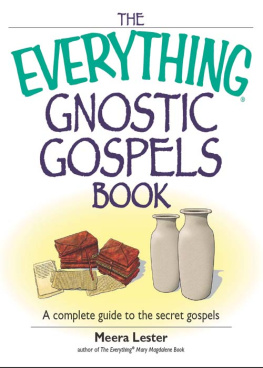Meera Kosambi - Dharmanand Kosambi-The Essential Writings
Here you can read online Meera Kosambi - Dharmanand Kosambi-The Essential Writings full text of the book (entire story) in english for free. Download pdf and epub, get meaning, cover and reviews about this ebook. publisher: Permanent Black, genre: Detective and thriller. Description of the work, (preface) as well as reviews are available. Best literature library LitArk.com created for fans of good reading and offers a wide selection of genres:
Romance novel
Science fiction
Adventure
Detective
Science
History
Home and family
Prose
Art
Politics
Computer
Non-fiction
Religion
Business
Children
Humor
Choose a favorite category and find really read worthwhile books. Enjoy immersion in the world of imagination, feel the emotions of the characters or learn something new for yourself, make an fascinating discovery.
- Book:Dharmanand Kosambi-The Essential Writings
- Author:
- Publisher:Permanent Black
- Genre:
- Rating:5 / 5
- Favourites:Add to favourites
- Your mark:
- 100
- 1
- 2
- 3
- 4
- 5
Dharmanand Kosambi-The Essential Writings: summary, description and annotation
We offer to read an annotation, description, summary or preface (depends on what the author of the book "Dharmanand Kosambi-The Essential Writings" wrote himself). If you haven't found the necessary information about the book — write in the comments, we will try to find it.
Dharmanand Kosambi-The Essential Writings — read online for free the complete book (whole text) full work
Below is the text of the book, divided by pages. System saving the place of the last page read, allows you to conveniently read the book "Dharmanand Kosambi-The Essential Writings" online for free, without having to search again every time where you left off. Put a bookmark, and you can go to the page where you finished reading at any time.
Font size:
Interval:
Bookmark:
The Essential Writings
For more books from India on the iTunes store click here

Frontis: Dharmanand, c. 1942.
(Photo by D.D. Kosambi)
The Essential Writings
Translated and Edited
and with an Introduction by
Meera Kosambi

Published by
PERMANENT BLACK
Himalayana, Mall Road, Ranikhet Cantt,
Ranikhet 263645
Distributed by
Orient Blackswan Private Limited
Registered Office
3-6-752 Himayatnagar, Hyderabad 500 029 (A.P.), INDIA
Other Offices
Bangalore, Bhopal, Bhubaneshwar, Chennai,
Ernakulam, Guwahati, Hyderabad, Jaipur, Kolkata,
Lucknow, Mumbai, New Delhi, Noida, Patna
Copyright 2010 MEERA KOSAMBI
eISBN 978 81 7824 405 1
e-edition:First Published 2012
All rights reserved. No part of this publication may be reproduced, distributed, or transmitted in any form or by any means, including photocopying, recording, or other electronic or mechanical methods, without the prior written permission of the publisher, except in the case of brief quotations embodied in critical reviews and certain other noncommercial uses permitted by copyright law. For permission requests write to the publisher.
To the two Kosambis
DHARMANAND AND
DAMODAR DHARMANAND
whose name I bearproudly but not lightly
Contents
| 1 |
| 2 |
| 3 |
| 4 |
| 5 |
| 6 |
| 7 |
| 8 |
ILLUSTRATIONS
Preface
I did not know my grandfather, Dharmanand Kosambi. A shocking statement, but true. He visited us at Pune only once, when I was about three years old; and my image of him as an elderly man with a beard may be based less on actual memory and more on his photograph on our drawing-room wall. He passed awayvoluntarily, by giving up all sustenancefive years later, at Gandhijis ashram in Vardha. My father, ever reticent in matters personal, did not talk about his relationship with his parents or siblings. Thus my relationship with Grandfather is not anchored in affective involvement, but is a vain effort (in both senses of the term) to claim him as an intellectual ancestor.The presumption is obvious. I am the type of scholar who complains bitterly of a few entire days spent in libraries and dusty archives with only a meagre snack for lunch and not a single energizing cup of tea (which I consume by the mugful at home). Grandfather on the other hand had, in his Buddhist quest, trudged barefoot up steep mountains through occasional snow to Nepal, and lived in austere solitude in various parts of India, Sri Lanka, and Burma, on the edge of physical survival.
Another reason for diffidence is the need to translate into English the Marathi works of a scholar who wrote excellent English himself. His introduction to Visuddhi-magga, which he critically edited for the Harvard Oriental Series, and his very few other English writings that I have been able to trace show his thorough mastery over English as well as Pali (and textual criticism). Additionally, he had studied Sanskrit with the best teachers, knew Hindi and Gujarati well, had taken a course in Russian at Harvard, and probably had a smattering of Burmese and Sinhalese. (We can see how his son, D.D. Kosambi, became a polyglot.) Yet he wrote mainly in Marathi, his objective being to disseminate the benefits of Buddhism to as wide an audience as possible in Maharashtra. Had he written the same books, or at least some of them, in English, they would have been authoritative and put an end to many loose interpretations and controversies about the Buddhas life and teachings, and about Pali texts, among both Indian and Western scholars. Grandfather rarely criticized any of these, but Dr V.A. Sukhtankar has analysed the situation succinctly in his Foreword to Buddha, Dharma ani Sangha (1910). After acknowledging the pioneering contribution of Western scholars to Pali and Buddhist Studies, he argues that the complexities of Indian culture, and our ancient way of thinking, and the essence of Pali and Sanskrit texts, often eluded them. At the same time, Indian scholars tended to rely too heavily upon Western interpretations and were not necessarily meticulous. Sukhtankar contrasts this with Dharmanand Kosambis first-hand knowledge of both the doctrine and practice of Buddhism.
But the present book is not, as I said, an attempt to reinstate Grandfather. He is already renowned as a Buddhist scholar among the better educated Marathi readers, and has been for decades, if not a century his first article appeared in 1909! I have only tried to present to English-speaking readers the man and the scholar whom I in fact rediscovered while working on this book. The research has been very rewarding in terms of revealing the extent of his original and critical thinking on Buddhism and socio-political matters. A bibliography of his writings appended at the end of this book numbers some twenty Marathi booksincluding a play on Bodhisattvaand as many of his articles as I was able to trace.
I have referred to Grandfather as Dharmanand here and in the Introduction. This is in keeping with the Marathi convention of using the first name, along with the plural pronoun denoting the honorific a distinction that unfortunately cannot be made in English. His name is spelt Dharmananda on the title page of Visuddhimagga, but my father wrote his own name as Damodar Dharmanand and I have retained the latter transliteration. Within the family circle, Grandfather was known as Bapu and my father as Baba (though I refer to him hereafter as D.D., the initials by which he was so widely known).
In retrospect, the idea of putting out this book seems so natural that I wonder why I did not think of it earlier. In fact, some years ago I had actually started translating Grandfathers autobiography, Nivedan, but not gone very far. It was Rukun Advanis suggestionor rather urginga few months ago that has resulted in this book, and his enthusiasm is responsible for it being completed as a priority.
Writing this book has served for me as a crash refresher course in Buddhism as well as Pali and Sanskritmy knowledge of these having gone rusty during my decades-long involvement with subjects like sociology and WomensStudies, and languages like Swedish. A generous and willing source of help was Dr M.G. Dhadphale, former Professor of Sanskrit and Pali at Fergusson College and former Honorary Secretary of the Bhandarkar Institute. (He was also my classmate decades ago in the subsidiary Pali class at MA, when he majored in Sanskrit and I in English Literature.) Dr Meena Talim, former Professor and Head of Department of Pali at St Xaviers College and currently Honorary Professor at Somaiyya College, Mumbai, and Visiting Professor at the University of Mumbai, took the time and trouble to read and comment on some of the translations involving Pali passages and Buddhist concepts. Dr Madhavi Kolhatkar of Deccan College of Post-graduate Studies (Deemed University) helped with translations of old Marathi verses of saint poets.
Several scholars connected with the University of Pune have been generous with their time. Professor Ram Bapat, formerly of the Department of Politics; Dr Sadanand More of the Department of Philosophy; and Dr Mangesh Kulkarni of the Department of Politics (who also suggested and even supplied useful books for reference) provided valuable discussions in contextualizing Dharmanand within the socio-political history of Maharashtra. Dr Raosaheb Kasbe, current holder of the Dr Babasaheb Ambedkar Chair, Dr Pradeep Gokhale of the Department of Philosophy, and Dr Mahesh Deokar, Professor and Head of the Department of Pali (all at the University of Pune), helped to locate Dharmanand within the recent revival of Buddhism in Maharashtra.
Font size:
Interval:
Bookmark:
Similar books «Dharmanand Kosambi-The Essential Writings»
Look at similar books to Dharmanand Kosambi-The Essential Writings. We have selected literature similar in name and meaning in the hope of providing readers with more options to find new, interesting, not yet read works.
Discussion, reviews of the book Dharmanand Kosambi-The Essential Writings and just readers' own opinions. Leave your comments, write what you think about the work, its meaning or the main characters. Specify what exactly you liked and what you didn't like, and why you think so.

